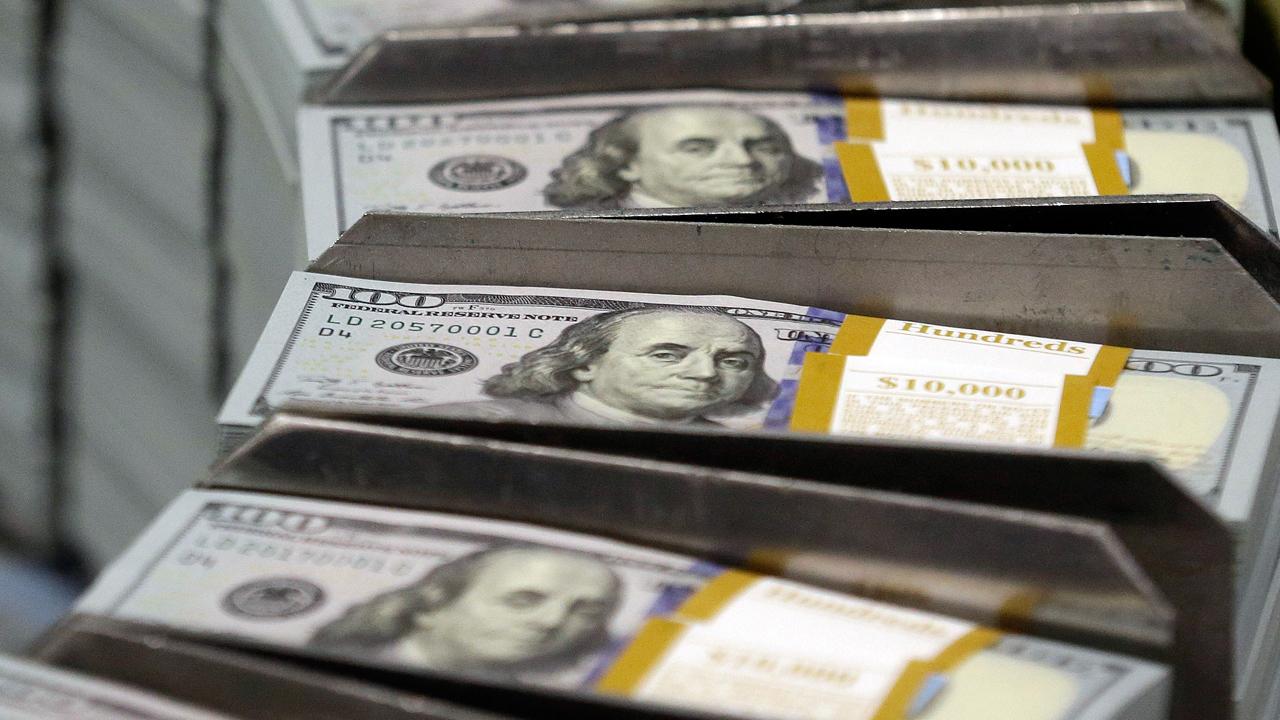The federal government should default on its debt
Last month, the national debt surpassed $22 trillion -- or nearly $180,000 per taxpayer. That figure will roughly double within three decades, since spending on Social Security, Medicare and Medicaid will balloon as America's population ages.
Such stratospheric debt levels will be completely untenable -- it'd be like saddling every taxpayer with an additional mortgage on top of his or her existing housing, credit card and student loans. The lion's share of tax revenue would go toward interest on the debt, leaving little for safety net programs, the military or core government functions. By 2050, the federal government will spend more on interest payments than Social Security, health care or national defense.
If our elected leaders had been responsible, they would have reformed entitlement programs long ago and eliminated pointless tax breaks to balance the budget. Unfortunately, it's too late for a "grand bargain" now.
Dramatically hiking taxes, or drastically cutting Social Security and Medicare benefits in the late 2020s or early 2030s when entitlement trust funds run dry, would send the economy into a depression. Ignoring the debt and indefinitely printing more money, as proponents of "modern monetary theory" effectively advocate, would lead to uncontrolled hyperinflation.
Our leaders have dug us into a hole. And the best way out is a "soft" default on the national debt.
A hard default, where the government simply refuses to pay its debts, would cause a global economic meltdown. Dollar-denominated Treasuries and federal reserve notes are the lifeblood of the global financial system. But a soft default -- a one-time devaluation of the dollar which enables the government to pay back its debts in full, albeit at a lower intrinsic value -- needn't be catastrophic.
Here's how a soft default would work.
The Treasury would peg the dollar to gold, oil, natural gas or silver -- or perhaps a basket of those commodities. By choosing a weak valuation, for instance, $10,000 per ounce of gold, compared to the current market price of roughly $1,290 per ounce, much of the debt could be paid down thanks to a much weaker dollar.
To be clear, a soft default isn't a good idea. It certainly isn't moral. It'd hurt everyone who socked away money in bonds, certificates of deposit or savings accounts.
But realistically, a default of some kind will happen anyway -- simply put, the debt load isn't sustainable. A soft default is the least bad option. And we ought to bite the bullet now before we rack up even more debt.
The timing for a soft default is comparatively ideal. We have historically low unemployment and a growing economy. To prevent hyperinflation, the government would have to assure investors that the soft default was a one-time occurrence and that future politicians won't repeatedly pull the same trick. That'd require a law or perhaps even a constitutional amendment.
Under normal circumstances, Congress would never agree to this plan. But if the Trump administration acted unilaterally to peg the dollar to a commodity basket, the short-term chaos that would ensue in the financial markets could pressure Congress to support such a law or amendment.
Pegging the dollar to physical commodities would cause short-term instability, but ultimately strengthen our nation. It'd force our leaders to balance the budget since the Treasury and Federal Reserve wouldn't be able to create new money without producing an equivalent amount of commodities. The Founding Fathers favored a commodities-backed currency for that very reason -- they rightly worried fiat money would lead to irresponsible borrowing.
The United States could easily maintain such a peg. We have the world's largest gold reserves. We recently became the world's top producer of crude oil and have been its top producer of natural gas since 2009. And we remain one of the top ten silver-producing countries. This immense mineral wealth ensures that a commodity-backed dollar wouldn't leave us vulnerable to the whims of OPEC nations or major silver and gold producers.
America's looming debt crisis threatens not just our economic prosperity, but our national security. Seventy percent of all federal spending goes to entitlement programs and interest payments, leaving just 30 percent for the military and other discretionary programs. That ratio will become even more lopsided due to demographic changes -- by 2030, for the first time ever, there will be more seniors than children in the United States.
CLICK HERE TO GET THE FOX BUSINESS APP
Entitlement reform won't happen in time to stave off catastrophe. The surest way to put the nation back on sound financial footing, and prevent future politicians from repeating the same mistakes that got us in this mess, is to softly default on the debt.
Todd J. Stein is a principal of Braeside Capital, L.P., a Dallas-based private investment partnership.




















